What does this all mean, all I want to be is profitable… Well, it is so complicated! Wrong! It is easy, with the correct tools and mechanisms in place, anyone can navigate the waters; regardless of how hard the current is pulling or pushing…In today’s world, we have to continually make decisions, some sticking with a Kamikaze version of Poreto 80:20 rule as long as we make 80% correct decisions we should be fine. I beg to differ, I would rather make 20% correct, based on well-informed decisions, as sooner or later your luck will run out…and the one bad decision could cost you significantly. After all, 20% of your decisions will bring you 80% of your business.
One may ask, how do we achieve this? So many things change! The world today is not what it was yesterday! That it is!, however, the world moves, and we all make concessions decisions be it implicit or explicit on how we are staying on top of this dynamic. In business, it is simple, we need to know our costs, and where we want to be, once we establish these elements, we can then sell, make an actual profit based on our true cost, (no guesstimates), and head towards where we wish to be.
How do I calculate my costs? Simplicity speaking, its reality is straightforward – the bigger the company or the more involved the operational elements are, it can become complex, however – it is a combination of your fixed costs and variable cost. Here we have touched on three different elements: Fixed, Variable Costs and the word combination alludes to the fact that you need to utilize a portion of one or maybe both cost types.
Fixed costs are business expenses that are not dependent on the level of goods or services produced by the business. They tend to be time-related, such as salaries or rent paid per month. This is in contrast to variable costs, which are volume-related (paid per quantity produced). Here we introduce the concept of Cost Accounting; managers utilize this, to guide them, as they make decisions for their own company. Cost Accounting is an internal mechanism, which differs from financial accounting, as the latter has guidelines to follow, commonly known as generally accepted accounting principles (GAAP). With the former – cost accounting, every company is unique and cost accounting will vary from company to company, hence it’s used solely for internal reporting.
Now that we got an understanding of the cost element, let us discuss the concept of where we want to be. In accounting terms, we refer to this as a budget. President Ronald Reagan said, “We don’t have a trillion-dollar debt because we haven’t taxed enough; we have a trillion-dollar debt because we spend too much.” Good effective budgeting will allow you to alleviate such instances.
Budgeting allows us to focus on:
Strategy: allowing us to focus not only short term but also long term objectives, what we want and need to achieve;
Profitability: it is very easy to lose sight of where a company is making most of its money, how do I achieve fiscally what I set out to do;
Assumptions (dynamic world) review – why are we doing what we do, can we do it better; and
Performance evaluation – how am I doing against all the objectives I set out, what do I need to change to achieve these goals;
Try it, (both budgeting and cost accounting) its helps you understand your business; it is the foundation for sound business decisions.
I am here to help you if you need assistance in achieving your financial goals. Reach out, I’m here, Give me a call or email me today!
